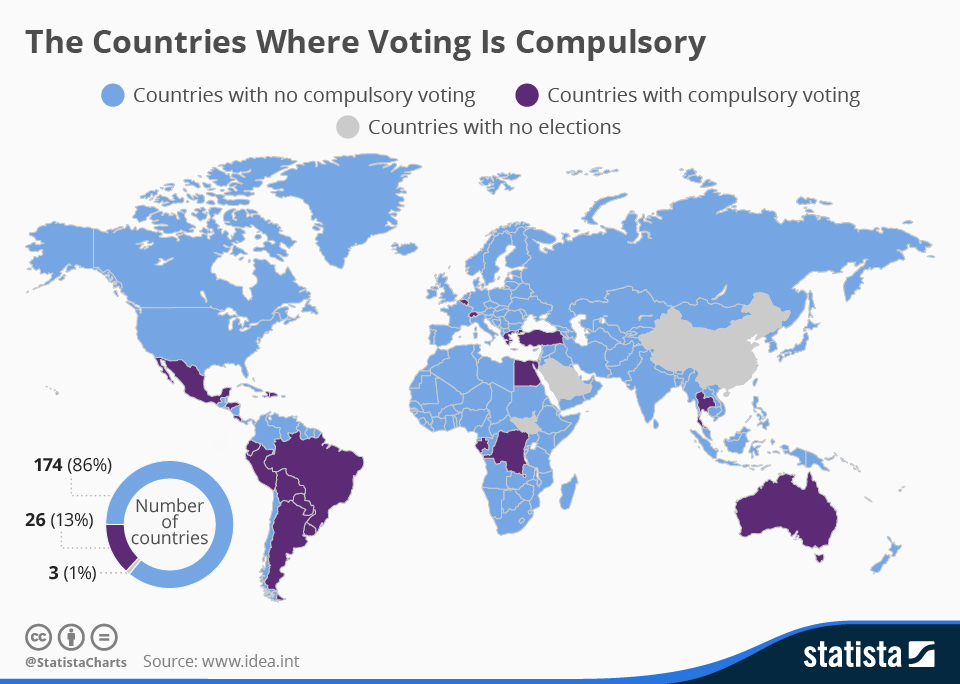3.4 Compulsory Voting
Arend Lijphart (1997) suggests that democratic elections suffer from a problem of unequal turnout. Since voting is more common among citizens with higher incomes and higher levels of education, political systems will be biased toward their interests. To ensure more equal representation in government, compulsory voting (CV) can be a mechanism for ensuring a more representative electorate (Lijphart, 1997).
Countries with compulsory voting
According to the International Institute for Democracy and Electoral Assistance (IDEA), there are 27 countries that enforce some type of compulsory voting, including Italy, Belgium, Greece, and Australia (IDEA, n.d).

Image Description
A world map titled “The Countries Where Voting Is Compulsory” shows three categories of countries:
Light blue for countries with no compulsory voting (174 countries, 86%),
Dark purple for countries with compulsory voting (26 countries, 13%),
Grey for countries with no elections (3 countries, 1%).
Notable countries with compulsory voting (dark purple) include Australia, Belgium, Brazil, Argentina, Ecuador, Singapore, and parts of Central Africa. Countries like China and Saudi Arabia are marked in grey, indicating no elections. The map includes a pie chart visualizing the number of countries per category. Source: idea.int via Statista.
Under a system of compulsory voting, citizens are required to show up at a polling place. They aren’t required to cast a vote – some may choose to spoil their ballot – but showing up is considered a civic duty (IDEA, n.d).
Does it work?

While CV does indeed increase turnout, it may not lead to more meaningful expressions of preferences. For instance, One analysis from Chile found that the implementation of compulsory voting raised turnout in traditionally low-turnout regions; however, the boost in turnout also increased the number of invalid votes (Contreras & Morales, 2024) which suggests voters may be showing up at the polls as required, yet failing to cast meaningful votes.
What’s the penalty?
Penalizing people who don’t vote might seem harsh, but the penalties aren’t that severe. Most countries that use CV impose a fine as a penalty for noncompliance, and the amount of the fine is often compared to a parking ticket (Taylor et al., 2014).

